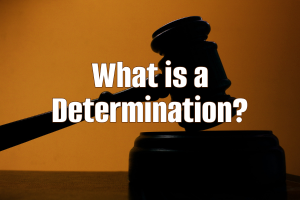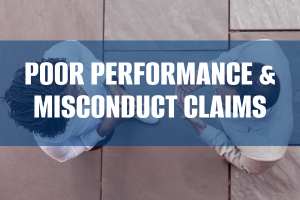Types of Employer Suspensions and How They Impact Unemployment
Suspensions are adjudicated differently depending on the facts and circumstances surrounding
the action leading to the suspension. Suspensions fall into one of three categories: investigatory,
disciplinary, or regulatory. The reason a suspension is issued will determine how the state will
view the action and whether or not the employee will be eligible for unemployment benefits. The
specifics can vary by state but most states will handle each type in a similar manner.
Investigatory suspensions are typically used when an allegation of misconduct has been made
against an employee and thus the circumstances warrant removing the employee from the work
site for the duration of the investigation. An employer’s policy should define whether or not the
employee will be paid or unpaid while off work. For purposes of unemployment, employees are
generally not disqualified from receipt of benefits for an unpaid investigatory suspension.
Employers are expected to conduct investigations quickly and make decisions without delay. In
many states, paying an employee while they are on an investigatory suspension will be sufficient
to avoid potential unemployment costs.
Disciplinary suspensions must be defined in the employer’s progressive disciplinary policy, are
unpaid and of a definite short term duration. A disciplinary suspension, as the name implies, is
for some specific conduct and is implemented in place of a warning. The suspension itself is
considered the discipline and at the end of the suspension period, the employee returns to work.
Unemployment will usually treat a disciplinary suspension as a separation because the employee
is unpaid and removed from the work site. The employer must prove that the suspension was
for misconduct and that there was a definite end date and return to work date. The employer
must already have all information collected to validate the employee’s suspension and the
investigation must be complete prior to suspension.
Regulatory suspensions are imposed by an entity other than the employer. The most common
examples are State or Federal agencies who impose suspensions on an employee that make
employment with the employer difficult. This could include licensure suspension or removal, loss
of work visa, or placement on a list forbidding an employee to work in a particular field. The
suspension can be permanent or of a temporary duration and has a direct impact on the
employee’s ability to do the job. For unemployment purposes the employer would be required to
prove misconduct to obtain a disqualification which can often prove difficult since the employer
was not the moving party. Further, employers are often not apprised of the specifics regarding
the regulatory suspension and may not have sufficient details to pursue a disqualification in a
case.
Thank you to our partner, Equifax, for providing this content.


